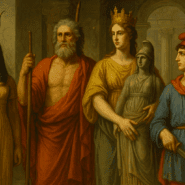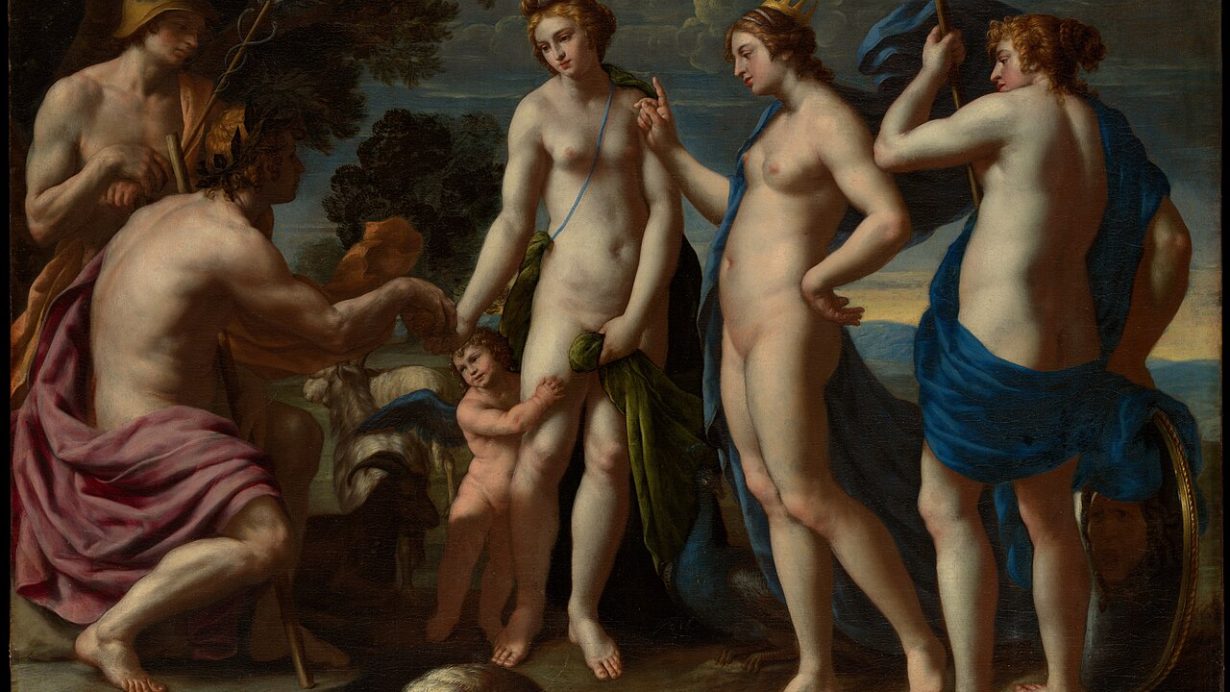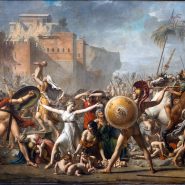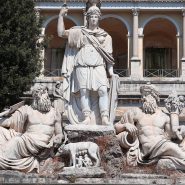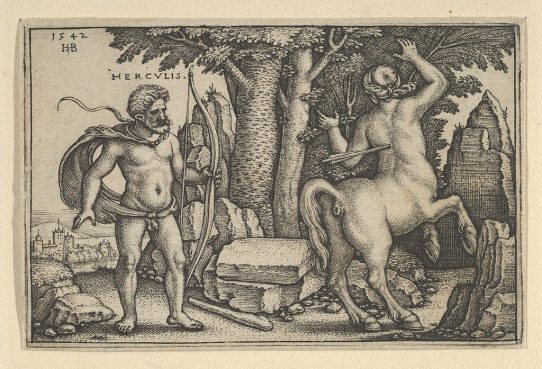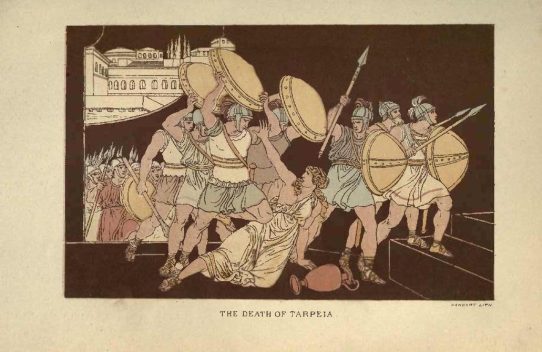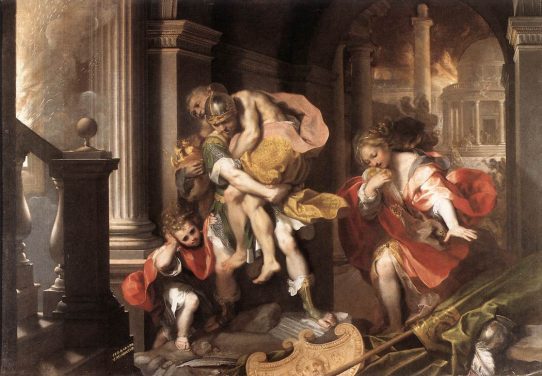The Judgment of Paris is one of the most famous episodes linking Roman mythology to its Greek origins — the spark that would ignite the Trojan War and eventually lead to the founding of Rome. Through a single choice made by a mortal shepherd, the myth explores the power of beauty, the danger of pride, and the inevitability of destiny.
For the Romans, the tale was more than legend: it was the first turning of the wheel of fate that would lead to Aeneas and the birth of their people.
The Feast of Discord
The story begins at a wedding in Olympus — that of Peleus and Thetis, parents of Achilles. All the gods were invited except Eris, goddess of strife.
Enraged by the insult, Eris arrived unbidden, casting a golden apple into the feast. On it were inscribed the words: “For the fairest.” Three goddesses immediately claimed it — Juno, queen of the gods; Minerva, goddess of wisdom; and Venus, goddess of love. Their dispute spread discord even among the gods, for each claimed divine right to the prize.
The Mortal Judge
To end the quarrel, Jupiter decreed that a mortal must decide. The gods chose Paris, a Trojan prince raised as a shepherd on Mount Ida, known for his fairness and beauty.
Mercury led the three goddesses to him, each seeking to win his favor. Paris trembled before their splendor, knowing that whatever choice he made would bring offense to two divine powers. Yet he accepted the apple and agreed to judge.
The Temptation of the Goddesses
Each goddess offered Paris a bribe. Juno promised him royal power and dominion over all nations. Minerva offered invincible wisdom and glory in battle. Venus, smiling gently, promised him the love of the most beautiful mortal woman in the world — Helen, wife of King Menelaus of Sparta. The gifts revealed their natures: ambition, intellect, and desire.
Paris, guided by youth and passion, chose Venus. The decision delighted her but enraged the others. Juno and Minerva vowed vengeance not only on Paris but on the city that would shelter him — Troy.
The Abduction of Helen
Venus kept her promise. Under her guidance, Paris sailed to Sparta. There he was welcomed by Menelaus and treated with honor. But when the king left for Crete, Venus filled Helen’s heart with love for the Trojan prince. She fled with him to Troy, bearing the beauty that would bring a thousand ships to her gates.
The Greeks, led by Agamemnon and Achilles, launched their assault, and the war that followed became the crucible of heroism and tragedy sung by poets for centuries.
Fate and the Trojan Legacy
To the Romans, the Judgment of Paris was more than a tale of passion. It was the first movement in the divine plan that would lead from Troy’s fall to Rome’s rise.
For though Paris’s choice doomed his city, it also set in motion the voyage of Aeneas, son of Venus, who would carry the Trojan bloodline westward to Italy. Thus the same goddess whose beauty kindled destruction also became the ancestress of Rome’s founders, binding error and destiny in one continuous chain.
Symbolism and Interpretation
Philosophers and artists have long seen in this myth the reflection of moral choice — the contest between power, wisdom, and love. Juno represents worldly authority, Minerva the intellect, Venus the passions of the heart.
Paris’s decision, ruled by desire, reveals both the weakness and the vitality of human nature. The apple, symbol of judgment, reminds us that choice defines character, and that every gift from the gods carries its own cost.
For the Romans, the myth also justified divine favor. By tracing their lineage to Venus, they affirmed that love — though flawed — was the source of civilization itself. From Paris’s error would come Aeneas’s mission, and from Troy’s ashes, the destiny of Rome. In that sense, the myth served as a moral reconciliation between the fall of one city and the rise of another.
Cultural Legacy
The Judgment of Paris became one of the most painted subjects in classical and Renaissance art. Painters such as Rubens, Watteau, and Cranach captured the tension between choice and temptation, while poets from Ovid to Shakespeare invoked it as a metaphor for moral testing.
In Roman literature, the story reminded readers that even divine beauty is bound by fate, and that the origins of greatness are often tangled with the flaws of the heart.
Based on classical sources in the public domain, including Ovid’s Metamorphoses and translations available via Project Gutenberg and Wikisource.


